Rising UC San Diego Scientists Lead the Way with NSF CAREER Awards
Story by:
Published Date
Article Content
They’re tackling challenges of degenerative diseases, developing new statistical genetics algorithms, using artificial intelligence to improve data-driven decision-making and more.
To date in 2024, eight early-career researchers at the University of California San Diego have received awards from the National Science Foundation’s Faculty Early Career Development Program (CAREER), furthering their work to solve pressing issues impacting today’s world. According to the NSF, these prestigious awards support early-career faculty at the assistant professor or equivalent rank who have the potential to serve as academic role models in research and education and to lead advances in the mission of their department or organization.
“Our early-career faculty members receiving NSF CAREER awards embody the innovative and interdisciplinary spirit that defines UC San Diego’s vibrant research environment,” said Vice Chancellor for Research and Innovation Corinne Peek-Asa. “Their work not only advances our research portfolio, but also inspires the next generation of scientists and thought leaders—highlighting our commitment to driving meaningful societal impact.”
This year’s recipients come from a broad range of fields, from structural engineering to environmental microbiology, highlighting UC San Diego’s diverse, world-class research enterprise. In its fiscal year 2024 annual report released last month, the university announced $1.73 billion in new research funding, solidifying its standing among the top public research institutions in the world.
Meet the eight CAREER recipients and learn more about the groundbreaking research being funded by this vital program:
Tiffany Amariuta
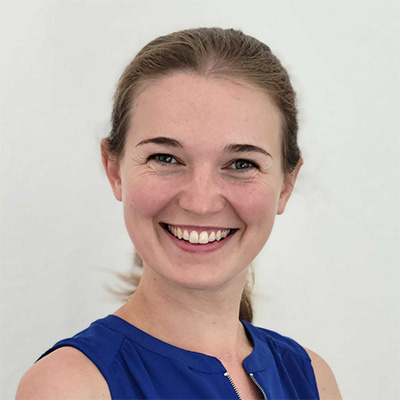
An assistant professor at UC San Diego for the past two years, Tiffany Amariuta’s research lab sits at the intersection of the Halıcıoğlu Data Science Institute and the School of Medicine’s Division of Biomedical Informatics, where she and her trainees develop new statistical genetics algorithms to understand the role of disease-critical genes in understudied and minority populations, in cell-type-specific contexts and in diagnostic models. Amariuta earned a bachelor’s degree in biological engineering at MIT, completed her Ph.D. with Soumya Rayachaudhuri in the Bioinformatics and Integrative Genomics Ph.D. program at Harvard Medical School, and then completed post-doctoral research with Alkes Price at the Harvard School of Public Health. Her NSF CAREER Award will propel methods development toward understanding the genetic control of gene expression and result in new algorithms that address statistical issues of applying conventional methods to high-dimensional and underdetermined systems and to data generated from new genomics technologies.
Fleur Ferguson
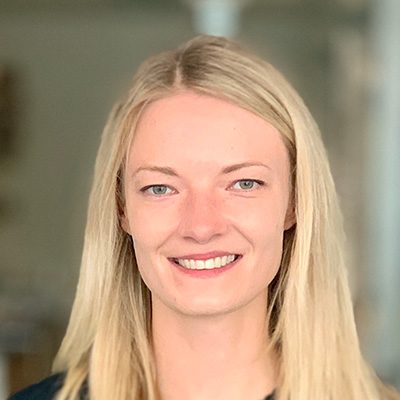
Assistant Professor Fleur Ferguson holds a joint appointment in the Department of Chemistry and Biochemistry and the Skaggs School of Pharmacy and Pharmaceutical Sciences at UC San Diego. She leads an interdisciplinary chemical biology research group that takes targeted protein degradation for cancer therapy and applies it to central challenges in degenerative diseases. She will use this award to develop scalable experimental and theoretical frameworks to improve how we develop and optimize targeted protein degraders, which hijack the cells’ natural trash-disposal machinery to destroy disease-driving proteins. In parallel, an integrative educational outreach component will be developed, giving high school students hands-on experience with targeted protein degradation in the classroom.
Linda Wegley Kelly
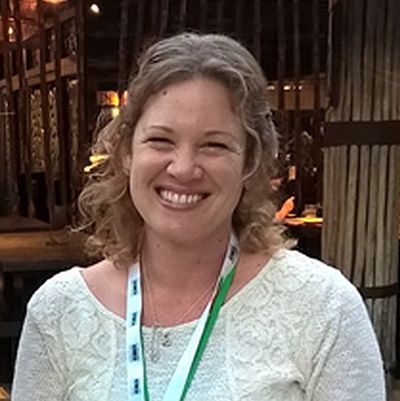
An environmental microbiologist and associate researcher at Scripps Institution of Oceanography, Linda Wegley Kelly specializes in marine biogeochemistry, microbial genomics, and untargeted metabolomics—the study of small molecules involved in metabolic processes. Her research highlights the critical role microbes play in nutrient recycling and organic matter transformation across coral reef ecosystems, seaweed aquaculture, and intertidal habitats. Supported by an NSF CAREER Award, her latest project aims to uncover how coral reef-derived organic substrates shape microbial communities and their ecological functions. Understanding these interactions—including how organisms exchange metabolites or signal physiochemical events—is essential for the effective management and restoration of complex environments. This project also includes the development of a four-week undergraduate research experience and field course at Gump Station on the South Pacific island of Moorea, followed by ongoing mentorship within the Scripps community.
Holly Okonkwo
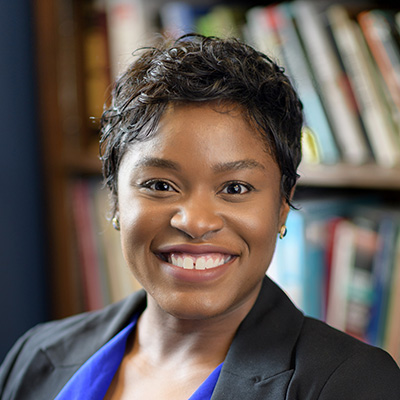
An assistant professor in the Department of Ethnic Studies in the School of Social Sciences, Holly Okonkwo is a cultural and applied anthropologist working at the nexus of science and technology studies, Africana studies, and women’s and gender studies. Her goal is to develop strategies and interventions that confront inequality and democratize science and technology for all. Okonkwo received her Ph.D. in anthropology from UC Riverside. Prior to joining UC San Diego in 2021, she was an assistant professor at Purdue University. Using a design-based research approach, she will use this award to explore the ways STEM learning can be reimagined and reshaped so that it centers diverse knowledge systems, fosters community, aligns with the actual goals and needs of Black undergraduate students, and prepares them to become leaders in addressing the global grand challenges that unfairly impact their communities.
Babak Salimi
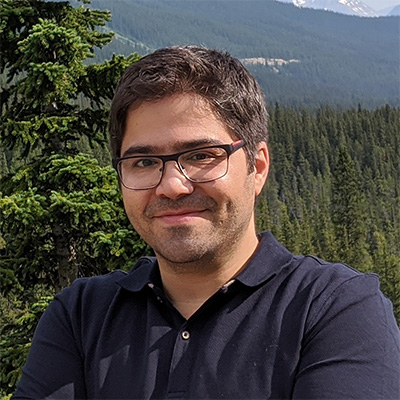
Since joining UC San Diego as an assistant professor in the Halıcıoğlu Data Science Institute and Department of Computer Science and Engineering in 2020, Babak Salimi’s research has focused on addressing critical issues such as bias, reliability, fairness and accuracy in data-driven decision-making from a data management perspective. Salimi earned his Ph.D. in computer science from Carleton University, followed by post-doctoral research at the University of Washington, where he trained in the database lab under Dan Suciu. In addition to this NSF CAREER award, Salimi’s work has been recognized with the Research Highlight Award from ACM SIGMOD in 2020, the Best Paper Award at ACM SIGMOD in 2019 and the Best Demonstration Paper Award at VLDB in 2017. His NSF CAREER project proposes a database-inspired approach to addressing algorithmic bias by integrating causal modeling in artificial intelligence with traditional data management techniques, aiming to improve the reliability, accuracy and fairness of data-driven decision-making.
Shabnam Semnani
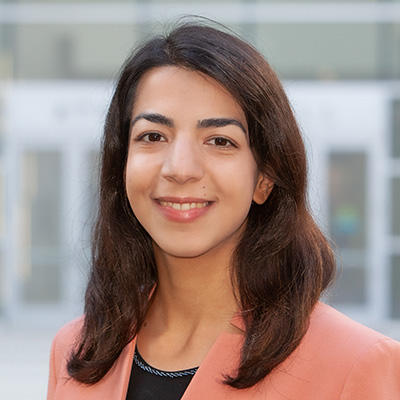
An assistant professor in the Department of Structural Engineering, Shabnam Semnani aims to develop an integrated experimental and computational framework for modeling the mechanical behavior of geological materials, such as rocks, and how they interact with chemical processes and transport of fluids. Reliable understanding and prediction of these interactions is essential for managing groundwater supplies, producing geothermal energy, preventing or remediating contamination, disposing of waste products, managing safety and sustainability of geological carbon and hydrogen storage facilities, and assessing stability of slopes and underground caves. This research will also be tightly integrated with education activities in the form of outreach to underrepresented high school and undergraduate students, short courses, workshops and development of broadly accessible tools.
Pengtao Xie
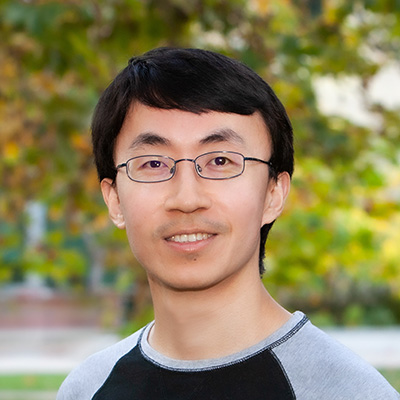
An assistant professor in the Department of Electrical and Computer Engineering, Pengtao Xie develops machine learning methodologies to improve health care and medicine, such as automatically generating diagnosis reports from medical images and measuring patient similarity for personalized treatment. On the theoretical side, he develops machine learning training strategies inspired by humans’ learning techniques to improve large language models and foundation models. Through this CAREER award, Xie will develop algorithms, software and systems that can automatically generate high-quality labeled data to mitigate the lack of labeled training data in specific domains and allow training of highly accurate machine learning models. The project will significantly broaden the applicability of machine learning across various application areas by lowering data barriers and will substantially reduce the labor costs of manual data annotation.
Yang Zheng
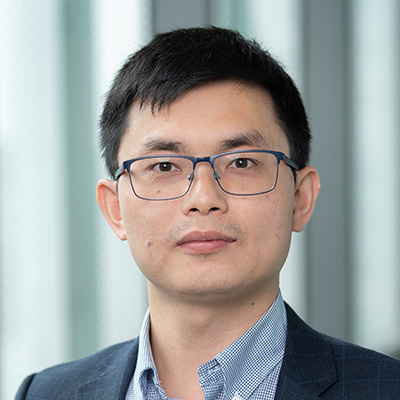
Yang Zheng, an assistant professor in the Department of Electrical and Computer Engineering, develops methods and frameworks for the optimization and control of network systems and their applications to cyber-physical systems, especially autonomous vehicles and traffic systems. His goal is to develop computationally efficient and distributed solutions for large-scale network systems by exploring and exploiting real-world system structures. This NSF CAREER project will tackle fundamental challenges related to the interplay between convex and nonconvex optimization for modern control systems. The outcomes will significantly broaden the optimization and control problems in societal engineering systems, including transportation, power grids, and smart buildings, facilitating efficient and reliable solutions.
Stay in the Know
Keep up with all the latest from UC San Diego. Subscribe to the newsletter today.



